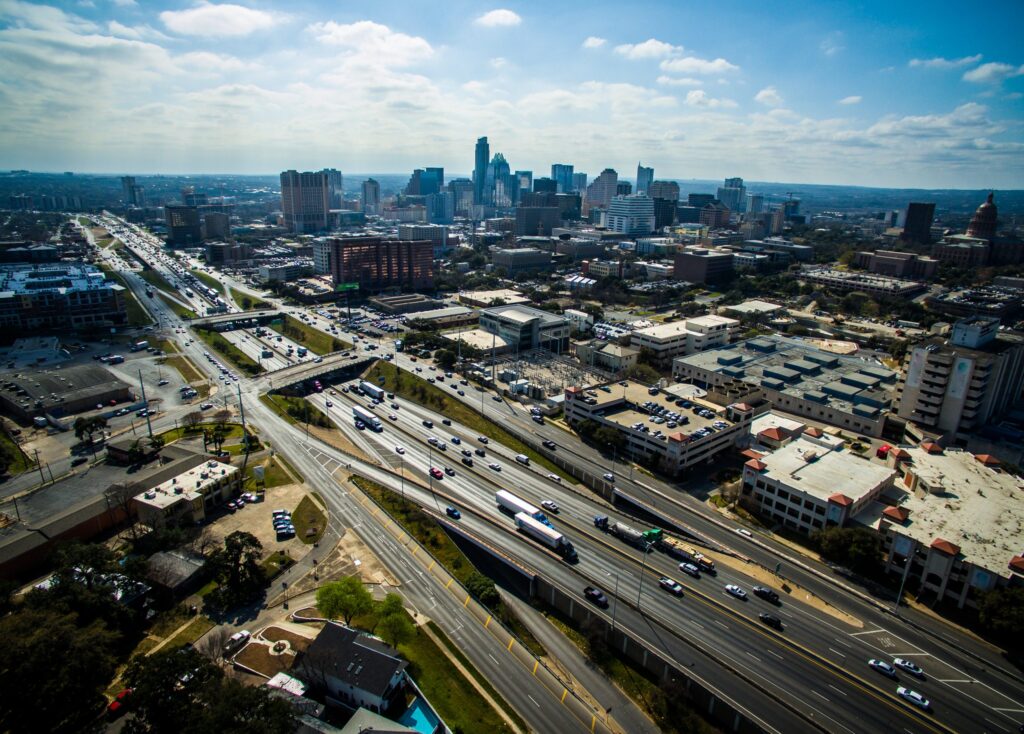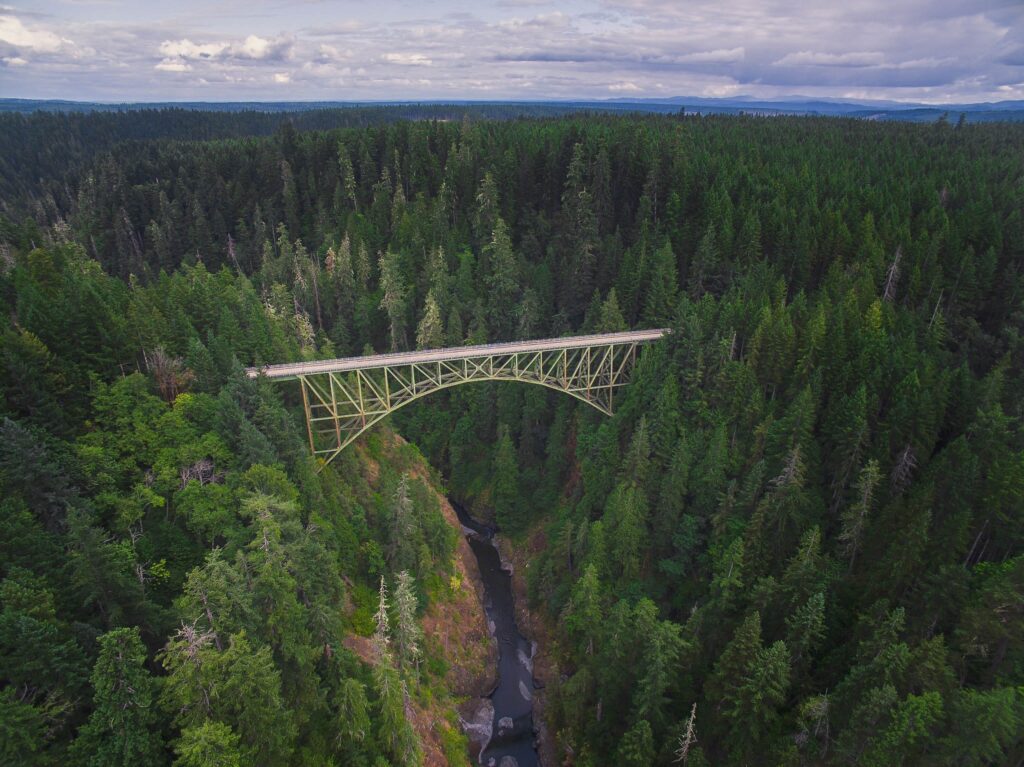Posts by Angeliki Vourdakis
Infrastructure: The overlooked tool for societal transformation
Infrastructure shapes human activity and influences both societal and economic outcomes, but it’s often overlooked in discussions about systemic change. Our past investments can lock us into outdated systems, yet future decisions must prioritize infrastructure that supports environmental and human wellbeing, enabling a transformative path towards a more sustainable future.
Read More21st-century infrastructure must be regenerative
Traditional infrastructure, like Austin’s I-35, often benefits some while harming others, especially marginalised communities. Expanding from six to twenty lanes, as proposed, could exacerbate this. Instead, regenerative infrastructure—rebuilding communities and ecosystems—offers a vision for 21st-century development, promoting social equity and environmental health, crucial for a sustainable future.
Read MoreWhat is regenerative infrastructure?
Sustainability is no longer enough to address today’s environmental challenges. Regeneration, which emphasises renewal, restoration, and resilience, is emerging as a more effective framework. By shifting from an anthropocentric to an ecocentric approach, regenerative infrastructure can positively impact both communities and ecosystems, fostering long-term, net-positive environmental and societal change.
Read MoreHow to introduce a wellbeing economy model
Finland pioneered a governance model for the wellbeing economy, integrating social and planetary wellbeing. Its approach involves broad stakeholder involvement and political prioritization. To implement it elsewhere, countries must tailor localized governance models. Finland’s experience highlights the importance of holistic, multi-stakeholder approaches and integrating ecological goals into policy frameworks.
Read MoreHumble Timber: The results
The Humble Timber alliance, a 9-actor collaboration in Finland, identified key barriers to timber construction, proposed solutions, and delegated responsibilities to accelerate carbon-neutral building. By fostering cross-sector cooperation, they addressed demand, supply, governance, and skills challenges, aiming to scale timber use in construction and promote sustainable urban development.
Read MoreDiscussing the future of timber construction in Finland
The event on May 18, 2022, gathered Finnish policymakers, city planners, and industry leaders to discuss the transition to timber construction. The Humble Governance model facilitated collaboration, addressing bottlenecks in emissions reduction, planning, and policy updates. Timber construction offers significant potential to lower emissions, but it requires proactive, collaborative efforts.
Read MoreWhat are syndemics, and why do they matter in health governance?
The COVID-19 pandemic highlighted how health crises are interconnected with political, social, and economic factors. Syndemic theory explains how overlapping health and social issues, like poverty and violence, worsen each other. Applying this concept to future health governance could improve decision-making by considering broader societal impacts and fostering resilience.
Read MoreEarth Day 2022: The shifts we need to mobilize
The latest IPCC report highlights that while the window to prevent the worst impacts of climate change is closing, we still have the opportunity to act. However, urgent, collective, and transformative action is required. Demos Helsinki calls for several key shifts: taking accountability at all levels of governance, embedding equity in the climate response, and understanding that the climate crisis is a systemic issue that should inform all decision-making. Humility and learning from diverse voices, including indigenous wisdom, are also essential as we move beyond net-zero and towards sustainable livability.
Read MoreHumble Timber: Building towards a carbon-neutral future
Timber buildings offer a sustainable solution to decarbonizing construction. The Humble Timber alliance, led by Demos Helsinki, brings together key stakeholders in Finland’s building industry to address challenges in transitioning to carbon-neutral construction. By fostering collaboration and identifying shared goals, the alliance aims to overcome barriers like the supply-demand dilemma and promote timber as a competitive and sustainable building material for the future.
Read MoreWhat is the Collingridge dilemma and why is it important for tech policy?
The Collingridge dilemma highlights the challenge of regulating new technologies due to limited early knowledge and entrenched systems later. Experimental governance offers a solution through early, continuous collaboration between stakeholders, fostering transparency and trust. This approach helps co-develop accountable and equitable technologies while addressing societal risks.
Read MoreLet’s rethink: A vision for digital platforms
Digital platforms have the potential to support meaningful governance and strengthen civil society. By leveraging their precision, transparency, anticipatory abilities, and capacity to incentivize behaviors, platforms can play a central role in addressing societal challenges like climate change and inequality. However, conscious efforts must be made to steer platforms away from solely benefiting businesses and toward empowering citizens, fostering pluralism, and enabling collective action. The next few years are critical in determining how platforms will shape the future of governance and civil society.
Read MoreWhat is new economic thinking?
New Economic Thinking (NET) aims to design an economy fit for the 21st century, challenging neoliberalism and exploring alternative models such as green, feminist, and solidarity economics. NET promotes policies that serve both people and the planet. It fosters collaboration and offers tools for building fairer, more sustainable economies.
Read More











